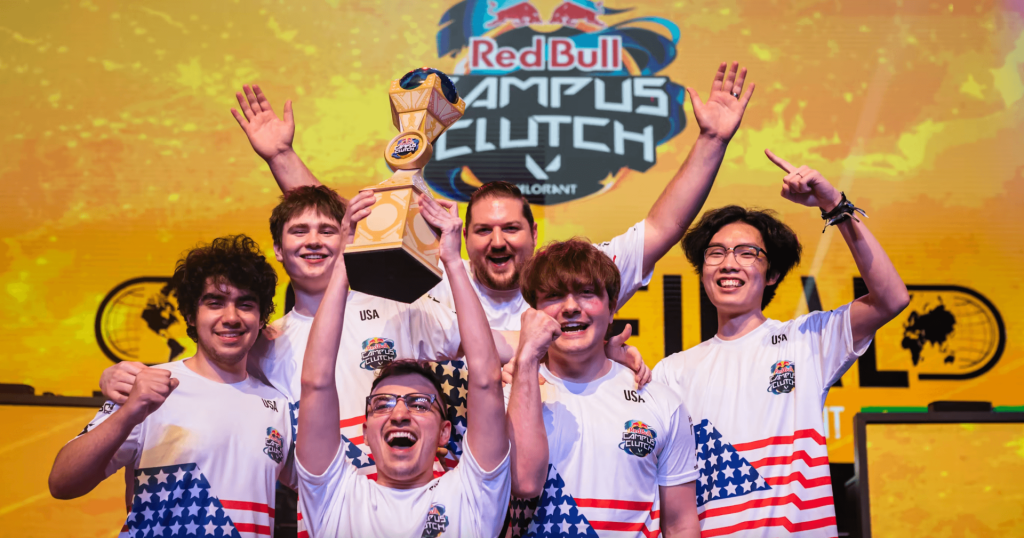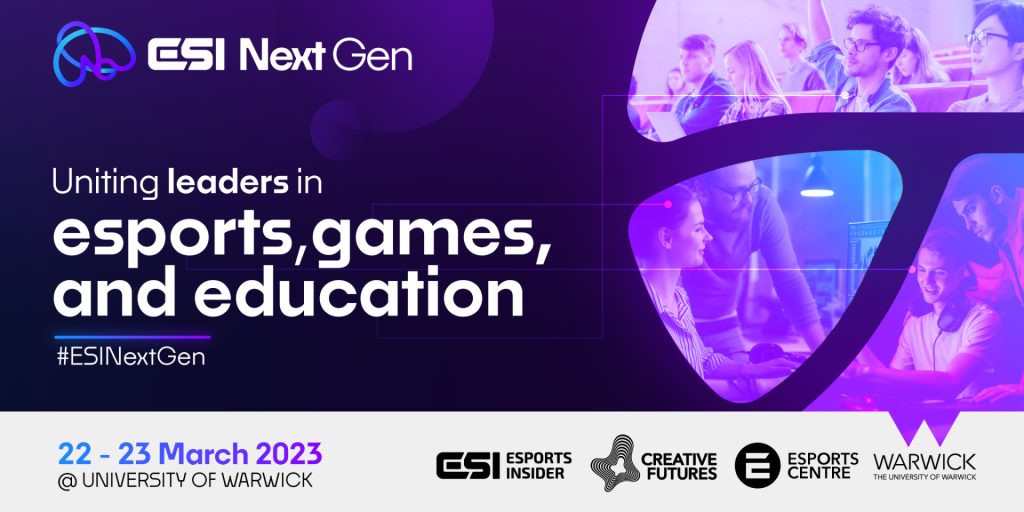
The Red Bull Campus Clutch World Final in São Paulo, Brazil, an international collegiate VALORANT tournament, is helping set the bar for what it means to create a true path to pro in grassroots esports.
The event, held in the iconic Estádio do Pacaembu (where football legend Pelé played his last game with Brazil), saw 50 student teams from across the world battle it out to win $20,000 (~£16,200) and a VIP experience at the next VALORANT Champions Tour.
After winning their respective national tournaments, each team at the World Final had to dominate a group stage and then fight through a single elimination bracket to try to lift the trophy. On the main stage of the grand final, Team USA and Team Canada had a wonderful back and forth of clutches, saves and impossible headshots, with USA’s team from Michigan’s Northwood University bringing home the win.
After the sea of confetti had settled and the celebrations had ended, Esports Insider stole some time with Nando Cohen, CEO and Partner at BBL, the company handling logistics and production for Red Bull, to understand the global and regional significance of the massive event that just took place.
“The biggest challenge in carrying out this project was to implement all the broadcast’s needs, operations and infrastructure within the available budget,” Cohen told Esports Insider. “Another challenge was the cultural differences, as we had 43 countries with different languages, cultures and habits coming to Brazil.
“The game’s community and competitive integrity were also very important factors and having the support of the game’s publisher was key in guaranteeing the experience with the brand without neglecting the interests of the community and audience.”
The event was originally supposed to happen in Texas, but due to a series of problems with visas, Red Bull moved it to Brazil and hosted the US nationals at the Esports Stadium in Arlington instead. São Paulo was chosen as the location for the tournament thanks to the strong growth of its esports sector; the iconic arena where the final took place is strongly emblematic of Latin America’s development in esports.
“In 2024, Pacaembu Stadium will feature the largest Battle Royale arena in the world,” added Cohen, “with space for 100 simultaneous players and over 2,000 viewers. There will be more than 3000m2 of space with a LED panel of more than 480m2. Brazil is home to the third largest gamer audience in the world and the biggest in Latin America.”

Riot Games’ new competitive ecosystem for its tactical shooter is about to come into effect — kicking off with an event in Sao Paulo — with a model designed to balance permanent partner organisations with opportunities for up and coming teams to develop.
The new VCT model offers underdog opportunities which not only get the show going, but also create stories to tell. One of the problems of this system, though, is that it doesn’t have a direct connection to the grassroots.
The Campus Clutch is an attempt to fill this void. The event creates opportunities for students and universities the world over — in the case of Red Bull’s event, counting more than 400,000 participants — all while constituting a valuable marketing opportunity.
The host country and city witnessed first hand the impact a tournament of this level can have for the scene, Cohen argued. “Having an option dedicated 100% to university students is a way of offering a gateway to the dream of becoming a professional player, and when a World Final of the Campus Clutch level takes place in Brazil, more university students notice the growth of the scene and understand that their interest is being taken seriously.
“Also, by hosting a world final in Brazil, universities and investors get more interested in the Brazilian esports scene at an international grassroots level which, in the long term, also increases the number of players from Championship university students and consequently investors/sponsors.”
There’s data to support the fact that the main role of this Red Bull university tournament is to be a showcase where aspiring players can show off their skills, with a production and marketing team behind them. After last year’s edition, more than 25 contracts were signed between players participating in the tournament and teams from their home countries.
One of the leading examples was Mohamed ‘shalaby’ Shalaby of Team Egypt (2021’s winners), who signed with French organisation Team Vitality just weeks after lifting the university tournament’s trophy.
University tournaments don’t have to be this big to make an impact for sponsors, organisers and players. Many events at a regional or national level still manage to put together good audiences and opportunities for its participants.
What the Red Bull Campus Clutch teaches us though is that opportunities arguably do increase linearly with money. The more investors are willing to put on the line for a tournament, the more impact it will have on both the brand’s recognition and the esports scene in general.
In the case of the Red Bull Campus Clutch, it’s created a burgeoning path to pro that gets players and fans excited to engage with the game — and Red Bull’s brand.
